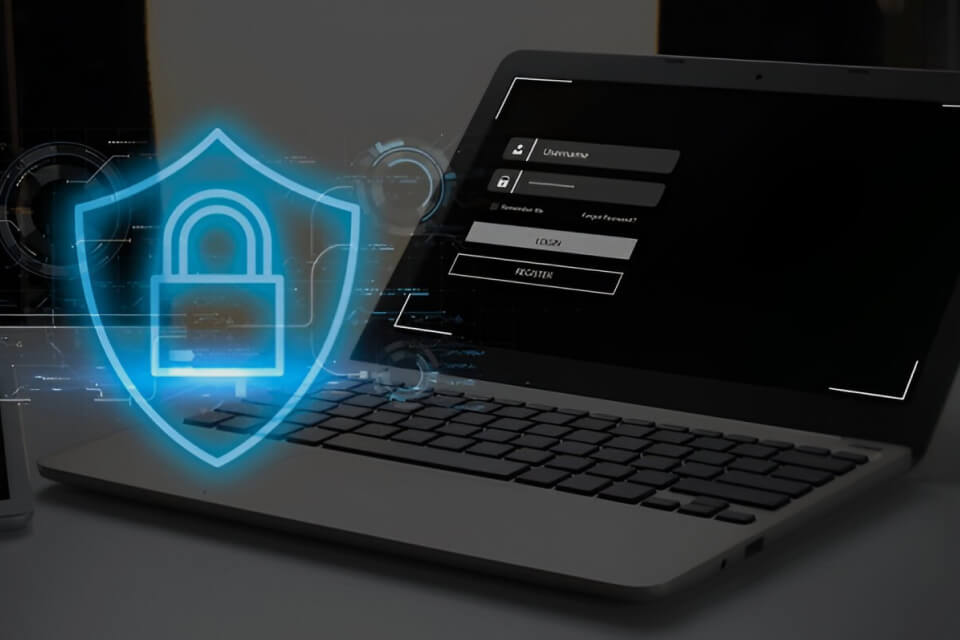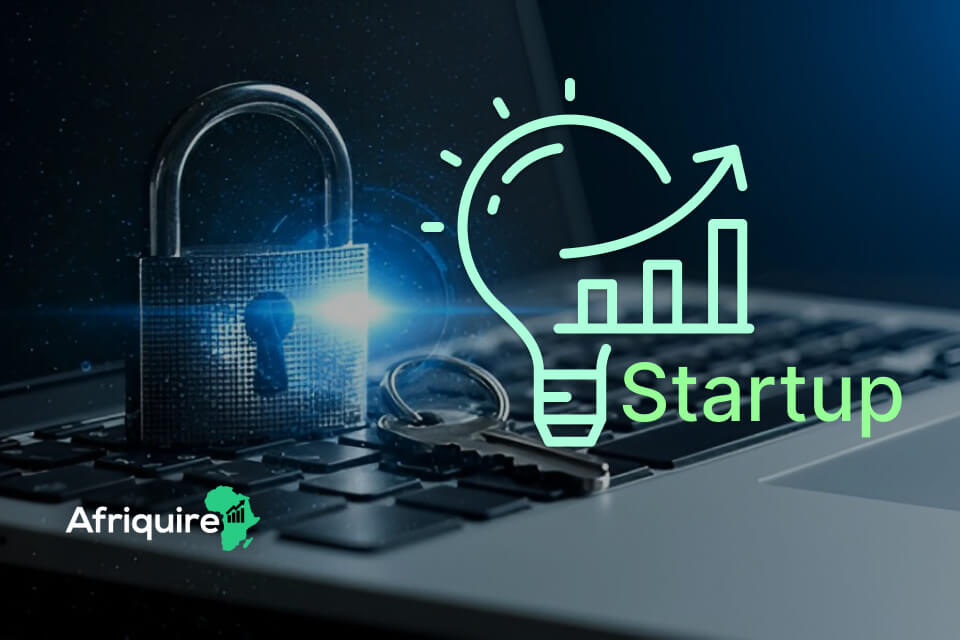Introduction
Cybersecurity for your startup is something you must take seriously from the very beginning. In today’s digital world, many startups face dangers like hacking, data theft, and online scams. If your business is not well protected, you could lose important information, money, and even your customers’ trust. So, understanding why cybersecurity matters is very important. It is not just for big companies but also for small startups like yours.
Firstly, protecting data is the most important thing. Startups collect sensitive details such as customer information, passwords, and business ideas. You must keep all these safe from cybercriminals. To do that, always use strong passwords, enable two-step verification, and update your software often. Also, try to build a security culture in your team by teaching everyone about online safety and how to spot suspicious emails or links.
Moreover, cybersecurity is not a one-time thing; you must keep improving your protection as technology changes. Keep checking your systems regularly and fix any weak spots quickly. In the end, investing in cybersecurity early helps you avoid big problems later. If you plan to start a tech startup in Africa, having strong cybersecurity will make people trust your brand more and help your business grow faster.
Why Cybersecurity Matters for Startups
Cybersecurity for your startup is now more important than ever, whether or not you own a tech startup. Today, data has become valuable, and cybercriminals are always looking for weak points in businesses, no matter how small they are. One single attack can make you lose money, damage your reputation, or even shut down your company completely. Whether you are collecting customers’ details, processing payments, or storing business secrets online, you must keep everything safe. Trust is the heart of any startup, so protecting your data should be your top priority from day one.
The Value of Data in Small Businesses
Data is the backbone of every startup. It includes customer contacts, payment details, business ideas, and even private emails. Losing this data or having it stolen can cause serious financial and legal problems.
Also, customers will hesitate to trust a business that cannot keep their personal information safe. If you want to own a business, especially a tech startup, having strong cybersecurity will show your clients and investors that you are reliable. In fact, most countries now have laws that require you to protect customer data, and breaking these rules can lead to heavy fines or penalties.
Common Threats Facing Startups
Startups face several cyber threats that can be very harmful:
- Phishing: Fake emails or messages that look real and try to steal your passwords or money.
- Malware: Dangerous software, like viruses or ransomware, that can steal or lock your files until you pay a ransom.
- Insider threats: Sometimes, the danger comes from staff or ex-workers who already know your systems.
- Weak passwords: Using simple or repeated passwords makes it easy for hackers to break in.
- Unpatched systems: When you don’t update your apps or software, you leave open doors for attackers.
- Insecure payment gateways: If your payment system lacks encryption, your customers’ financial data can be stolen.
These are only a few examples, but hackers keep finding new tricks every day. Therefore, you must stay alert and ready.
Examples of Fraud and Data Breaches
- Phishing attack: Imagine you receive an urgent email that looks like it is from your bank, asking to confirm your username and password. If you reply, attackers could access your account and steal funds or data.
- Ransomware incident: Your startup’s files suddenly become inaccessible, with a message asking you to pay money, or you will never get your data back. If you have no backup, you could lose everything.
- SQL injection: If your website does not check user inputs properly, a hacker can enter special code in a login box to get admin access and download customer details.
- Staff mistake: An employee unknowingly installs a program from a suspicious email, allowing malware to infect the company’s systems and exposing valuable information.
With the growth of digital business in Africa, these risks are becoming more common. That is why every founder must take cybersecurity for your startup seriously from day one.

Practical Steps for Data Protection
Ensuring cybersecurity for your startup is very important in today’s digital world, especially if you are planning to start a tech startup in Africa. Protecting your data means protecting your business and your customers from online dangers like hackers or viruses. If your data is safe, your business can run smoothly, and your customers will trust you more. Let’s look at some simple but practical steps to keep your startup’s data safe.
Secure Password Practices
Importance of Strong and Unique Passwords
Passwords are like the keys to every detail about your business. They protect your personal and business information from strangers. If your passwords are weak, hackers can easily guess them and steal your data. That’s why it’s so important to use strong and unique passwords for each account.
A strong password should include a mix of letters, numbers, and special symbols like @ or #. Avoid using simple passwords such as “123456” or “password.” You can also try using phrases or sentences that are easy for you to remember but hard for others to guess. Think of your password as a lock – the stronger it is, the harder it will be for anyone to break in!
Using Two-Factor Authentication
Even with a strong password, you still need extra protection. That’s where two-factor authentication (2FA) comes in. 2FA adds another security step when you log in. For example, after entering your password, you might receive a code on your phone or email.
This means even if someone gets your password, they still can’t enter your account without that code. Many popular services like Google, Microsoft, and Facebook have this feature. Turning it on is one of the simplest ways to boost your cybersecurity and protect your data.
Regular Data Backups
Cloud Backup Options
Backing up your data simply means keeping a copy of it somewhere else, in case something goes wrong. Cloud backup stores your data online so you can access it anytime and from anywhere. This helps if your computer is stolen or damaged.
Popular cloud storage options include Google Drive, Dropbox, and Microsoft OneDrive. These services also offer automatic backups, so your files get saved without you doing much. Using the cloud means your startup’s data will always have a safe home on the internet.
Local Backup Practices
However, it’s not enough to depend only on the cloud. You should also keep a local backup on an external hard drive or a network-attached storage device. This is useful when your internet connection is poor or when you want to control your own data.
Make sure to keep these local backups in a safe place – away from moisture, theft, or fire. Also, remember to update them often so they include your latest files. Having both cloud and local backups gives your startup double protection.
Setting Up Basic Firewalls
Network Firewalls vs. Software Firewalls
Firewalls work like security guards for your computer or network. They decide which data can enter or leave, keeping out unwanted visitors.
There are two main types:
- Network firewalls, which protect all devices connected to your internet network.
- Software firewalls, which protect individual devices like your laptop or phone.
Most startups use both because together, they create stronger protection. It’s like having a security gate outside your compound and another lock on your door.
Monitoring Traffic for Suspicious Activity
But remember, installing a firewall is not the end. You also need to monitor your network traffic to check for anything strange, such as unknown connections or sudden data spikes.
Some cybersecurity tools can automatically send alerts if something suspicious happens. This helps you react quickly before things get worse. Regular monitoring keeps your business safe and builds confidence that your systems are secure.

Building a Security Culture
Creating a strong security culture is very important for protecting your startup from cyber threats. When everyone in the company understands why cybersecurity matters, it becomes part of your daily routine. This means cybersecurity is not only the job of the IT team but something everyone is responsible for.
Employee Training and Awareness
First of all, one of the best ways to improve cybersecurity in your startup is through employee training. Regular training helps your staff know about common online dangers like phishing emails, fake websites, or unsafe links. When employees know how these scams work, they can easily avoid them. For example, you can organise short workshops or share weekly security tips through emails.
Moreover, awareness is key. Teaching your team about the latest tricks used by hackers keeps everyone alert. You can also use posters, reminders, and team discussions to help employees remember safe online habits. When your workers stay aware, they become your first line of defence against cyberattacks.
Access Control and Permissions
Next, controlling access is very important. Not everyone in your startup needs to see or use the same information. You should give permissions based on people’s roles. For example, only the finance team should have access to financial records, and only the IT team should handle technical systems.
This simple rule helps to reduce mistakes or intentional leaks. It also protects your startup if one employee’s account gets hacked. To make this stronger, use proper password rules. Ask your workers to create strong passwords with letters, numbers, and symbols. Encourage them to change passwords often.
Additionally, you should use multi-factor authentication. This means a person needs two or more ways to log in, like a password and a code sent to their phone. It adds an extra wall of protection, making it harder for hackers to break in.
Creating a Security Policy for Daily Operations
Finally, your startup should have a clear security policy that everyone can follow. This policy is like a guide that explains how to handle important data, what to do during a cyberattack, and how to report something suspicious. It should be easy to understand and available for everyone in the company.
Your security policy should also include simple but effective rules. For instance, make sure your team always backs up data, uses the internet safely, and protects their devices. Even small actions like locking computers when not in use or not using public Wi-Fi for work can make a big difference.
Having a written policy helps employees know exactly what the company expects from them. It also creates a sense of responsibility among workers. When everyone knows what to do, your company runs more smoothly and securely.
Maintaining Ongoing Protection
Cybersecurity for your startup is not something you do once and forget. It is a continuous task that helps keep your systems and data safe every day. As your startup grows, you must keep watching, updating, and improving your security. Here are some simple but powerful ways to make sure your startup stays protected always.
Regular Software Updates
One of the easiest but most effective ways to protect your startup is by keeping all your software up to date. Software updates are not just about adding new features. They also fix bugs and close security gaps that hackers can use to break into your system. Whether it’s your computer’s operating system, business apps, or antivirus software, always install updates as soon as they come out.
Think of updates like fixing broken locks on your doors. If you don’t fix them, thieves can walk in easily. But once you update, you’re locking every digital door in your startup, making it harder for cybercriminals to enter.
Using Antivirus and Anti-Malware Tools
Antivirus and anti-malware tools act like bodyguards for your computers and devices. They help detect, block, and remove harmful programs such as viruses, ransomware, and spyware. These tools constantly scan files and monitor data coming into your system to find anything suspicious.
Many startups use trusted antivirus programs that run quietly in the background, protecting their systems without slowing them down. However, it is important to keep these tools active and updated at all times. When your antivirus is up to date, it can quickly stop new types of threats before they cause any harm.
Conducting Periodic Security Audits
Security audits are like medical check-ups for your startup’s digital health. By doing regular checks, you can find weaknesses in your systems before hackers do. These audits help you review your networks, software, and access controls to ensure everything is working safely.
Even if your startup is small, performing these audits is a smart move. It helps you fix small problems before they become big ones. Besides, it builds trust among your customers, investors, and team members because it shows that you care about their data and privacy.
Open Source And Freemium Tools
You don’t need a huge budget to protect your startup. There are many free and low-cost cybersecurity tools that offer strong protection. Open source and freemium options such as ClamAV for antivirus protection or OpenVAS for finding security weaknesses are great examples.
These tools allow startups to test and strengthen their defences without spending too much money. However, remember to keep these tools updated and properly configured. A free tool can still fail if it’s outdated or not set up correctly.

Frequently Asked Questions (FAQs)
1. What is cybersecurity for your startup?
Cybersecurity for your startup means protecting your company’s computers, data, and networks from hackers or malware.
2. Why is cybersecurity important for startups?
Startups often handle sensitive data, so protecting it helps prevent theft, fraud, and loss of trust.
3. How can startups start securing their data?
Begin with strong passwords, firewalls, and keep your software updated regularly.
4. What should startups do about employee cybersecurity training?
Educate employees on recognising phishing and safe online habits to reduce human error risks.
5. How often should cybersecurity systems be updated?
Regularly update them as soon as new patches or versions are available to close security gaps.
Conclusion
In conclusion, cybersecurity for your startup is not an option but a must-have if you want to protect your business and customers. By following simple but effective practices such as using strong passwords, firewalls, multi-factor authentication, and regular software updates, your startup can defend against cyber threats. Moreover, educating your team and backing up important data will keep your operations safe and running smoothly.
As you establish your startup in Africa or anywhere else, prioritising cybersecurity helps build trust with clients and investors alike while safeguarding your digital assets. Remember, a secure startup is a successful startup, so take action today to protect your future.




2 thoughts on “How to Ensure Cybersecurity for Your Startup”
Thanks I have recently been looking for info about this subject for a while and yours is the greatest I have discovered so far However what in regards to the bottom line Are you certain in regards to the supply
Do you have a spam problem on this website; I also am a blogger, and I was curious about your situation; many of us have developed some nice methods and we are looking to exchange solutions with other folks, please shoot me an e-mail if interested.